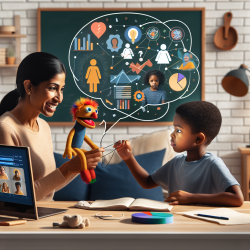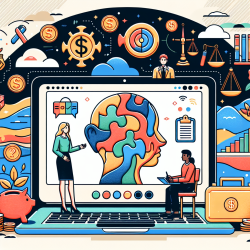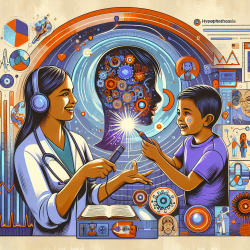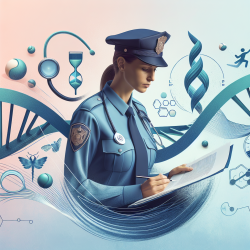Recent research in the intersection of embodied cognition and psychoanalysis provides a promising avenue for improving therapeutic outcomes for children. The study "Re-enacting the Bodily Self on Stage: Embodied Cognition Meets Psychoanalysis" highlights how integrating embodied cognition into therapeutic practices can enrich our understanding of the self and enhance treatment methodologies. This blog will explore how practitioners can implement these findings to improve their skills and encourage further research in this field.
Embodied cognition posits that our cognitive processes are deeply rooted in the physical and social experiences of our bodies. This perspective aligns with psychoanalytic theories that emphasize the importance of bodily experiences and early interactions in shaping the self. The study by Scorolli (2019) demonstrates how these two approaches can be reconciled to provide a more holistic understanding of mental health issues, particularly in children.
One of the key therapeutic approaches discussed in the study is Psychoanalytic Psychodrama. This method involves the spontaneous re-enactment of past experiences on stage, allowing individuals to explore their emotions and conflicts in a safe and controlled environment. By integrating the principles of embodied cognition, this approach emphasizes the importance of bodily experiences and interactions in understanding and resolving psychological issues.
Practitioners can enhance their skills by incorporating the following strategies derived from the study:
- Emphasize Bodily Experiences: Encourage children to express their emotions and experiences through physical actions and interactions. This can help them better understand and articulate their feelings.
- Use Role Reversal: Implement role reversal techniques to help children gain different perspectives on their experiences. This can foster empathy and deeper understanding of their own and others' emotions.
- Incorporate Doubling: Use doubling techniques where a therapist or another participant voices the unspoken emotions of the child. This can help bring unconscious feelings to the surface and facilitate emotional processing.
- Create Safe Scenarios: Ensure that the re-enactments occur in a safe and supportive environment, allowing children to explore their emotions without fear of judgment or harm.
These strategies can be particularly effective in addressing issues such as internet addiction and eating disorders, which are discussed in the study. By focusing on the bodily and social aspects of these disorders, practitioners can provide more comprehensive and effective treatment.
Encouraging further research in this area is crucial for advancing our understanding of the interplay between embodied cognition and psychoanalysis. Practitioners can contribute to this effort by documenting their experiences and outcomes using these techniques, and by collaborating with researchers to explore new therapeutic methods.
To read the original research paper, please follow this link: Re-enacting the Bodily Self on Stage: Embodied Cognition Meets Psychoanalysis.










